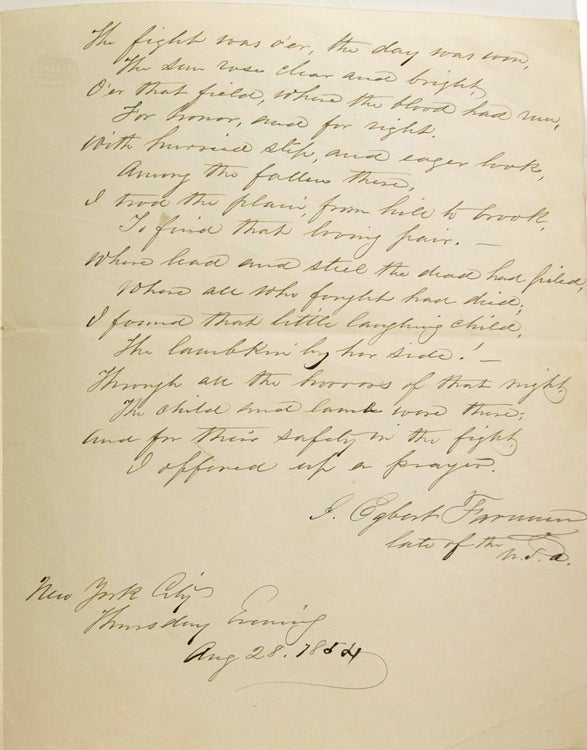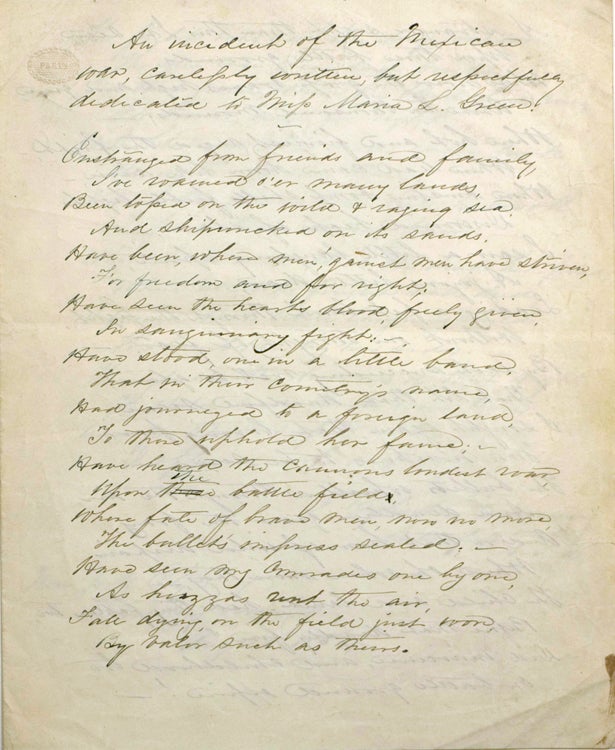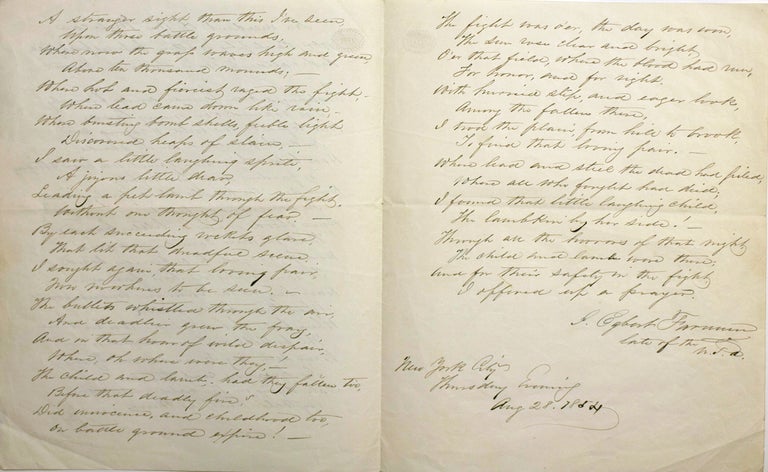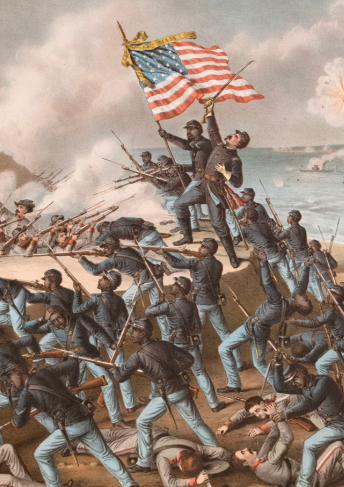A SURPRISINGLY POIGNANT POEM FROM A HARDENED VETERAN
Autograph Document, Signed, "J. Egbert Farnum late of the U.S.A." Being a hand-written poem relating an incident of the Mexican American War.
New York City: August 28, 1854.
Price: $750.00
About the item
3 pp., pen and ink on bifolium. 8vo. A SURPRISINGLY POIGNANT POEM FROM A HARDENED VETERAN. Old folds, very minor stain to edge of bottom right corner on first page not affecting text, else fine.
Item #307508
Romantic in a style befitting the era, Farnum offers a graphic account of a a heart-wrenching scene from battle, which he describes as ”carelessly written but respectfully dedicated to Maria L. Green.” Reading in part:
…”Where hot and fiercest raged the fight,
Where lead came down like rain, ~
Where bursting bombshells feeble light,
Discovered heaps of slain, ~
I saw a little laughing sprite
A joyous little dear,
Leading a pet lamb through the fight,
Without one though of fear. ~”
Soldier, express rider, mercenary, adventurer, and notoriously hard drinking brawler, John Egbert Farnum’s (1824-1870) military career began in the Mexican American War, where he served as a sgt. major in the 2nd Pennsylvania Infantry Regiment. He would go on to see action in the Crimean War, and the jungles of Cuba and Nicaragua before enlisting as a major in the Union Army in 1861. Farnum fought gallantly in some of the bloodiest engagements of the American Civil War, including Fredericksburg, Chancellorsville, and Gettysburg before his wounds forced him to retire from active service (Farnum was shot 19 times and suffered two saber wounds). He was promoted to brevet brigadier general for his meritorious service.
Despite his incredible war record, Farnum is more often remembered for his involvement in the infamous voyage of the schooner, Wanderer. Built as a luxury racing yacht, the Wanderer was purchased by William Corrie in 1858, with the assistance of southern “fire eater” Charles A.L. Lamar. Corrie had the schooner refitted as a slave ship and along with Farnum, who later claimed ignorance of the scheme, and the ship's crew, sailed to Africa and loaded 407 slaves aboard. They arrived off Jeckyll Island, Georgia in November and were arrested for violating the 1807 Act Prohibiting the Importation of Slaves. Farnum was charged with piracy. He escaped jail but was recaptured, and after a lengthy and sensational trial in which the President of the United States, James Buchanan, came to his defense, he was acquitted of all charges.




